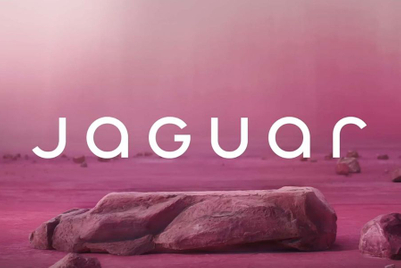
If an amazingly purposeful idea wins a ton of awards at advertising shows such as Cannes Lions, but the work does nothing to move or change the business and has no real impact on the community for which it was created, does it deserve an award?
Over the past few years advertising award shows have become all about praising the most purposeful campaigns. Rather than focusing on selling products effectively and efficiently, juries tend to reward work that positions brands around their positive societal impact.
From Dell and VMLY&R’s I Will Always Be Me, which won a Grand Prix at Cannes for a technology that preserves the voices of people with motor neuron disease, to AMV BBDO’s Hope Reef, which also won a Grand Prix for creating a coral reef in Indonesia that spells the word “hope” as part of a commitment to coral restoration, big ideas with big societal impact are sweeping the big shows.
There’s even data to prove it: According to System1, a company that measures emotional responses to ads, nearly half (48%) of work submitted to Cannes this year lacked the potential to drive long-term brand growth because it was more focused on eliciting short-term emotional responses.
Whether juries are gravitating toward purposeful work due to the chaotic state of the world or simply because they don’t want to be seen voting against it isn’t totally clear. We also know that some activations or ideas are designed purely to win awards, often with no intention to roll out the campaign in the real world.
Regardless, what’s really important is what happens after the awards are won, the case study videos are made and the client is ready to move on to business realities.
Degree’s Inclusive Deodorant provides an interesting case study. In 2021 the Unilever-owned deodorant brand and agency Wunderman Thompson rolled out a new deodorant design prototype with a hooked lid and magnetic closures that are easier for people with limited sight and arm mobility to grab. It was highly acclaimed at award shows for creating an accessible alternative for people with disabilities, including winning a Grand Prix in Innovation at Cannes.
But just over 18 months after the award show buzz died down, TheWall Street Journal reported this week that Degree’s Inclusive Deodorant has never appeared on store shelves. Further testing revealed the disabled community wanted designs that were more customized to their specific conditions, and many still found the product hard to use.
Unilever and Degree attempted to do the right thing with an inclusive deodorant design. The project pushed an important industry conversation about disability and accessibility to the forefront in a world that hasn’t quite scratched the surface on it. Now, it's taking the feedback and iterating on the product to create something that does work for more people. And that’s OK. In fact, it’s good practice.
But by awarding campaigns with such fanfare that acknowledge marginalized communities without waiting to understand the real benefit or impact the work has on that community, the industry risks jumping the shark in celebrating its achievements.
Advertisers are responsible to be good corporate citizens and should continue to improve their products and services to make them more accessible to, and inclusive of, everyone. They should also take a firm stance and demonstrate commitment to their values.
But perhaps the industry would be better off if it didn't consider the biggest wins to be in the form of trophies at award shows but rather shown in the impact it can have on client businesses — and real people’s lives.
Juries would be better serving their mission to celebrate creativity by waiting until the latter part of the equation has been added to the initial big idea before popping the champagne.



.jpg&h=334&w=500&q=100&v=20250320&c=1)

.jpg&h=334&w=500&q=100&v=20250320&c=1)
.jpg&h=334&w=500&q=100&v=20250320&c=1)
.jpeg&h=334&w=500&q=100&v=20250320&c=1)

.jpg&h=334&w=500&q=100&v=20250320&c=1)
.jpg&h=334&w=500&q=100&v=20250320&c=1)







.jpg&h=268&w=401&q=100&v=20250320&c=1)
